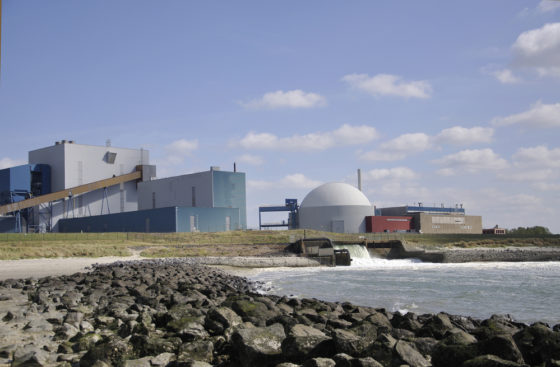Nuclear power is back on the political agenda, with a right-left divide


Nuclear power is back on the political agenda in the Netherlands, with both politicians and some scientists suggesting it would help meet climate targets.
The VVD has said it is ruling out nothing in the battle to combat climate change, while the CDA has said nuclear power should be considered a serious option. D66 too has not ruled out expanding nuclear capacity, if it can be done in a sustainable, safe and affordable way.
Left wing parties, however, are opposed, with most calling for the closure of the Netherlands only nuclear power station and a moratorium on further expansion.
The Netherlands currently has a single nuclear power station, in Borssele in Zeeland which produces some 2% of total Dutch energy needs. By contrast, 13% of German and 48% of Belgian energy is nuclear.
In 1985, three new locations for nuclear plants were agreed – the Maasvlakte in Rotterdam, Eemshaven in Groningen and Borssele – and the building land is still reserved for this purpose.
And during Sunday’s election debate prime minister Mark Rutte indicated Groningen could still be a good location for a new nuclear power station. In addition, he said, that the Netherlands would not be able to achieve its climate targets without nuclear power.
Supporters
The biggest advantage of nuclear power, supporters say, is that it does not produce carbon dioxide, and that it requires limited space. Nor are you dependent on wind or sunshine.
They also argue that since the 1970s and 1980s, nuclear power stations have become much safer.
But as GroenLinks leader Jesse Klaver pointed out in Sunday’s election debate, building a new nuclear power station would take so long that it would not contribute to meeting the 2030 carbon dioxide reduction targets.
Mix
Nuclear energy could be expanded but it could not form ‘the’ solution for climate change, nuclear physicist Bob van der Zwwan told Nu.nl earlier. ‘And currently, the role of nuclear energy on a global scale is decreasing,’ he said.
Other scientists too suggest that nuclear power should remain part of the mix.
At the end of last year, Dutch electricity company EPZ said it wanted to extend the life of the Borssele plant and suggested building two more nuclear power plants at the same site.
EPZ says building a new reactor at the Borssele site would cost between €8bn and €10bn and take eight years. But this would only be a serious option if supported by the government, the company says. Borssele is currently scheduled to close in 2033.
Last year, MPs commissioned research into the cost of nuclear power, a report which concluded nuclear energy is no more expensive than that generated by the wind and the sun. But that report was slammed by other experts, who pointed out it had been written by a pro-nuclear advice bureau.
Thank you for donating to DutchNews.nl.
We could not provide the Dutch News service, and keep it free of charge, without the generous support of our readers. Your donations allow us to report on issues you tell us matter, and provide you with a summary of the most important Dutch news each day.
Make a donation